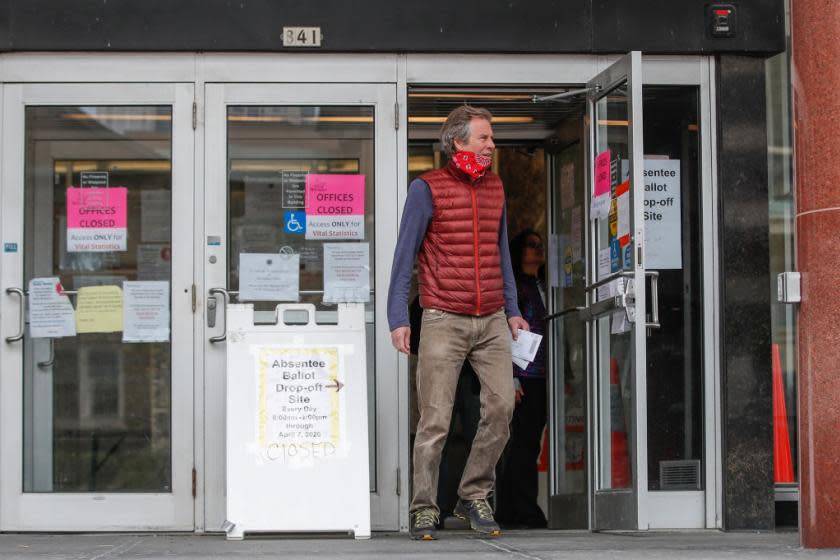U.S. Supreme Court sides with GOP on Wisconsin election, apparently rewrites state election law

Wisconsin's local elections and presidential primaries will likely proceed on Tuesday after the conservative majority on the Wisconsin Supreme Court struck down an executive order Monday from Gov. Tony Evers (D) to delay the election to June 9 due to the coronavirus outbreak. There are open questions about how many polling places will be open and how many people will be able to vote by absentee ballot. The U.S. Supreme Court ruled 5-4 on Monday night that Wisconsin voters must hand-deliver their absentee ballots by Tuesday evening or have them postmarked April 7, overruling a lower court that had extended absentee voting for six days.
The U.S. Supreme Court, like the state court, split along ideological lines, siding with the state and national Republican Party. In the dissent for the four liberals on the court, Justice Ruth Bader Ginsberg warned of "massive disenfranchisement" due to the conservative majority's "eleventh hour" intervention "to prevent voters who have timely requested absentee ballots from casting their votes." As of Monday, only 57 percent of the 1.3 million requested absentee ballots had been returned, The Associated Press reports, and "it’s unclear how many of the outstanding 539,000 ballots will be in voters' hands by Tuesday to meet the April 7 postmark deadline."
The court conservatives said Ginsberg's "entirely misplaced" dissent "completely overlooks" that the court is allowing the absentee ballots to be received by April 13, so long as they are postmarked April 7. But that changes Wisconsin election law, says Matthew DeFour, state politics editor for the Wisconsin State Journal.
There is no postmark requirement in state law. The lower court judge changed the date, but did not add a postmark. The U.S. Supreme Court has just written a new election law in Wisconsin.
— Matthew DeFour (@WSJMattD4) April 6, 2020
The state Supreme Court — one of whose 5 conservative members recused himself because he's on Tuesday's ballot — said Evers lacked the authority to change the election date. Evers had called the GOP-controlled legislature into special session over the weekend to shift the date or switch to all-mail-in-ballots, like Ohio did, but the Republican leaders gaveled in and out of season without taking any action, NPR News reports. Thousands of poll workers have refused to participate in the election over COVID-19 fears; heavily Democratic Milwaukee, for example, will have just five polling sites, not its planned 180. The National Guard has been asked to help.
More stories from theweek.com
Wearing mask, gloves, and protective gown, Wisconsin GOP assembly speaker says it's 'incredibly safe' to vote
What America needs to do before lockdown can end
Trump, who votes by mail, calls other mail-in voting 'very dangerous' and 'corrupt'

